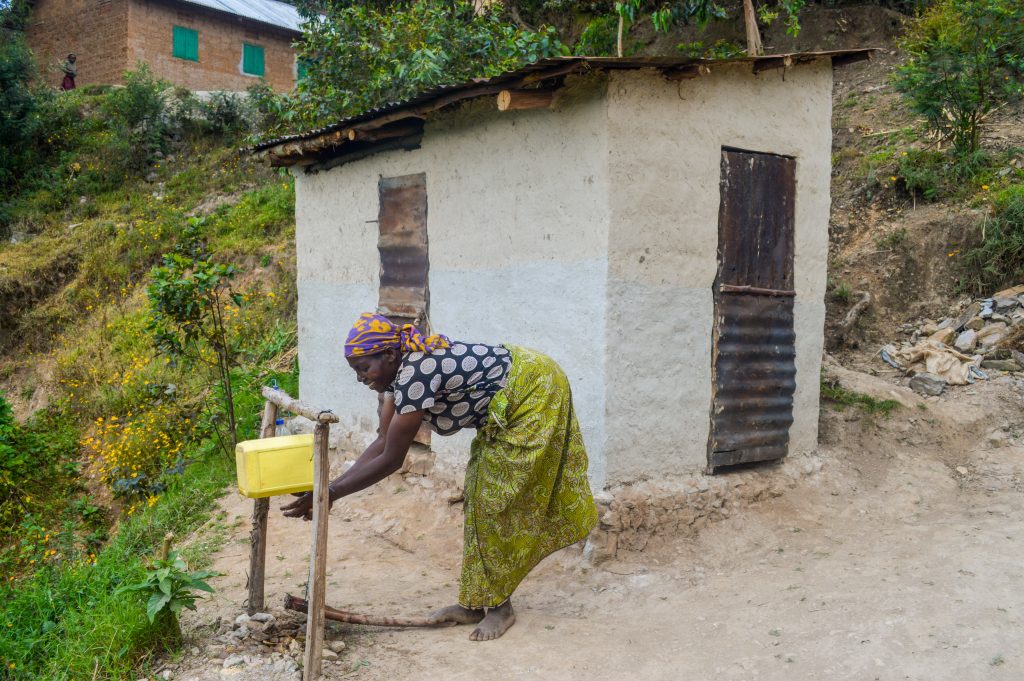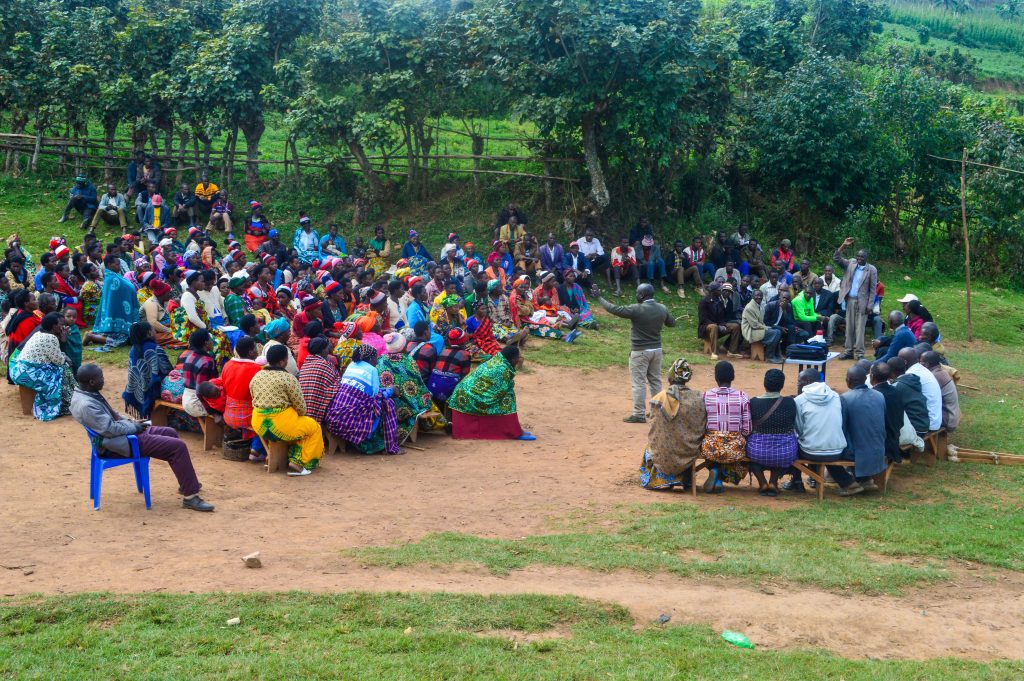Meet Judith
Judith Wafyoyo’s face lights up when she talks about her home.
Looking back, the state of water, sanitation and hygiene in Judith’s village was dire. She and several other families in her community would walk for hours each day to collect water. The sanitation situation was just as bad. Most toilets did not have roofs, doors or even covers, barely any handwashing facilities and even worse, some people were practising open defecation. Her latrine did not have covering lids. Judith says flies were flying everywhere in her house. They were drinking dirty untreated water causing illnesses in the different families – Judith often had to take her children suffering from water-borne related diseases such as diarrhoea and stomach aches for treatment in nearby clinics.
Now, Judith is excited when talking about water because she has a water harvesting tank in her compound – giving her a lot of relief. She says, during the rainy season, she shares the water with her immediate neighbours, who replicate the sanitation practices AWS has trained her on. But she is most proud of her new home – having an improved pit latrine fitted with a satopan to keep out flies and odours, a bath shelter and treating their drinking water using SODIS. Together, Judith and her community members have banded in a Village Savings and Loans Association to help them save and borrow money for their small income-generating activities or to meet their other expenses like school fees with much ease.




